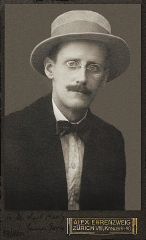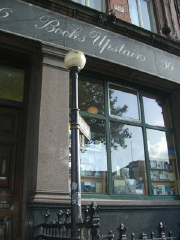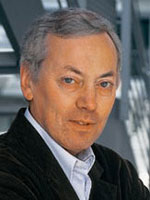Note: This interview was broadcast on KUT-FM, an NPR station based in Austin,Texas.
 James Joyce was born and raised in Dublin, and it was from Dublin he fled as a young man, to Trieste, in order to write Ulysses, perhaps the key novel of the early 20th century.
James Joyce was born and raised in Dublin, and it was from Dublin he fled as a young man, to Trieste, in order to write Ulysses, perhaps the key novel of the early 20th century.
But before he left, he began to write A Portrait of the Artist as a Young Man, which, as most of us will remember, is a rite of passage not only for its main character, the sensitive, acute Stephen Dedalus (the alter ego for Joyce himself), but also for the impressed and impressionable reader.
When I asked the scholar, bookseller and editor Maurice Earls to pick a piece of writing to discuss that’s had a tremendous impact on him, it was this novel that he chose.

Himself a Dubliner, Earls is joint editor of the Dublin Review of Books. Of special interest to ThoughtCast listeners, he’s also penned an essay on Helen Vendler’s Dickinson: Selected Poems and Commentaries.
Just hours before an author event was to take place in his small, singular independent bookstore Books Upstairs, ThoughtCast spoke with Earls about “A Portrait” at length. The conversation brought me back to my own strong feelings about this book, which had a tremendous impact on me as well, many years ago.
Click here  (24 minutes) to listen!
(24 minutes) to listen!
Podcast: Play in new window | Download
Subscribe: RSS



 Note: This interview is the sixth in a ThoughtCast series which examines a specific piece of writing — be it a poem, play, novel, short story, work of non-fiction or scrap of papyrus — that’s had a significant influence on the interviewee, that’s shaped and moved them. Prior interviewees include author
Note: This interview is the sixth in a ThoughtCast series which examines a specific piece of writing — be it a poem, play, novel, short story, work of non-fiction or scrap of papyrus — that’s had a significant influence on the interviewee, that’s shaped and moved them. Prior interviewees include author  Want to know how the world is going to end? Just ask Russian cosmologist
Want to know how the world is going to end? Just ask Russian cosmologist